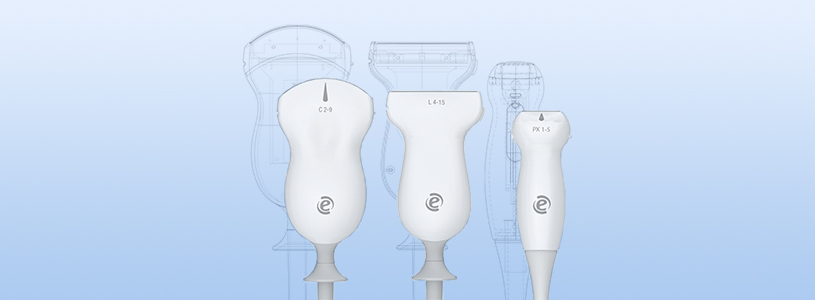
Experience at Esaote, an international group working in the field of medical diagnostic imaging and pH laboratories for 40 years.
To protect the health of patients and users of ultrasound diagnostic systems, a high level of infection prevention and control must be ensured. To do so, appropriate reprocessing procedures must be developed, as Esaote has with the support of pH laboratories.
Ramona De Luca, Leader in Ultrasound probe usability, reprocessing and accessories at Esaote Ultrasound Research & Development, tells us more.

Esaote is an international Group that has been working in the field of medical diagnostic imaging for 40 years. Ultrasound, dedicated Magnetic Resonance Imaging, and Information Technology for healthcare are the main areas of interest at this Company, which maintains a presence in over 80 countries around the world, made possible by an international distribution network.
Ultrasound is the most widely used diagnostic imaging technique in the world, for its major advantages over all other types of imaging equipment. Ultrasound scanners are lightweight, have a limited footprint, and are sustainable in terms of cost. They can be easily transported and provide high-resolution images in real time using ultrasound, pressure waves classified as non-ionizing radiation. The scope of ultrasound applications is vast, courtesy of a wide range of probes specially designed for each intended use.
The investigations that can be carried out include of the abdomen, the musculoskeletal and cardiovascular systems, in gynecology and obstetrics, and in interventional procedures. Ultrasound can be performed in different environments, which include diagnostic imaging centers, emergency rooms, intensive care, and operating rooms.
To protect the health of patients and users in these complex scenarios arising from different environments and intended uses, a high level of infection prevention and control must be guaranteed. Ultrasound systems and probes require appropriate reprocessing procedures, including cleaning, disinfection and sterilization, to make them safe to reuse. My team decides on the requirements and reprocessing instructions for the various types of probes and their validation. We combine adherence to the regulations with the development of solutions that can improve the efficiency and reliability of clinical performance, and the quality of the system operations.
The aim is to design probes to make them easier to clean, disinfect, and sterilize, and to provide healthcare professionals with information on the procedures they need to follow to ensure they are safe to reuse.
The focus on reprocessing, and especially on the validation of the relevant procedures, has increased since the EU Medical Devices Regulation (MDR). We work side by side with the pH Laboratories at the TÜV SÜD Group to demonstrate that the probe will be cleaned, disinfected and/or sterilized when reprocessed as directed. As well as deciding on appropriate reprocessing procedures, the aim of this partnership is to set up testing conditions and methods of measurement that comply with the regulations, and are efficient and reliable. This translates into the optimization of resources, timing, and costs.
The partnership is also a full expression of two of the pillars at this Company: design as project culture, and the human-centered approach. Reprocessing requirements provide major input for design: the probes are produced to make them easier to clean, disinfect, and sterilize, and to ensure they are safe to reuse.
As well as guaranteeing compliance with current regulations and technical guidelines, the aim of this approach is to develop solutions that augment safety and improve the experience of healthcare professionals and patients. A genuine partnership has been established with pH Laboratories, focusing every project on our clients (doctors or patients) and on the optimization of the working processes, in a dynamic, stimulating and efficient framework based on dialog between professionals with a wide range of expertise, and therefore on multiple perspectives.
Read MORE posts
Chief Sustainability Officer, a new position required to implement the transition
In recent years, attention to sustainability and corporate social responsibility has intensified all over the world. In many cases, it has also resulted in contradictions between organizations’ intentions and their actual strategic decisions.
Beyond standards. Human-machine relations: safety and usability.
A machine is a complex object, designed to extend people’s capabilities. In the healthcare sector, a technological device can improve doctors’ potential to make a diagnosis, by increasing their perception, organizing and synthesizing data...
The year of care management
2020 tested the strength of the trust relationship between employees and organizations. We have asked ourselves some questions. Read the answers on the subject from our HR.


